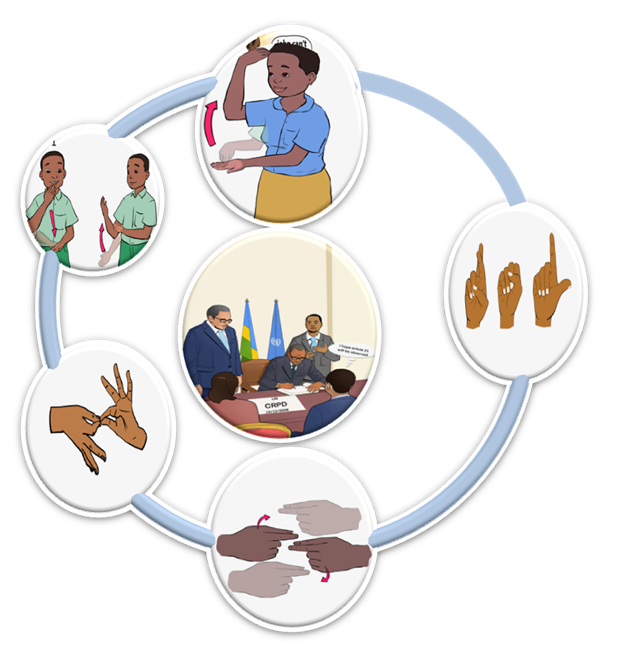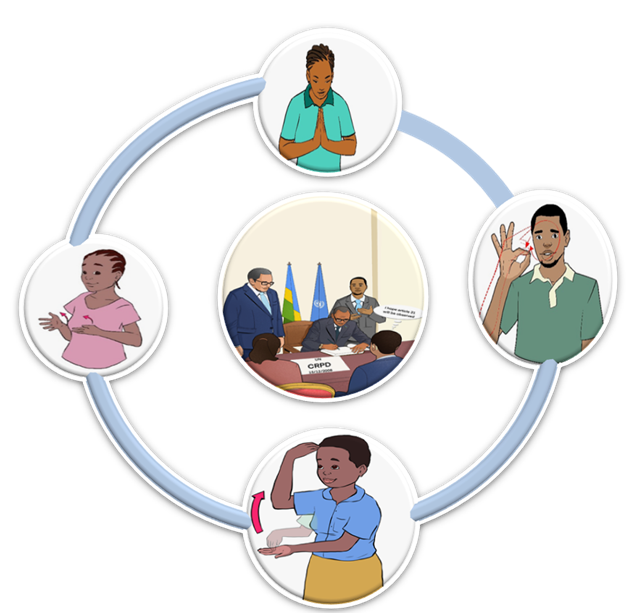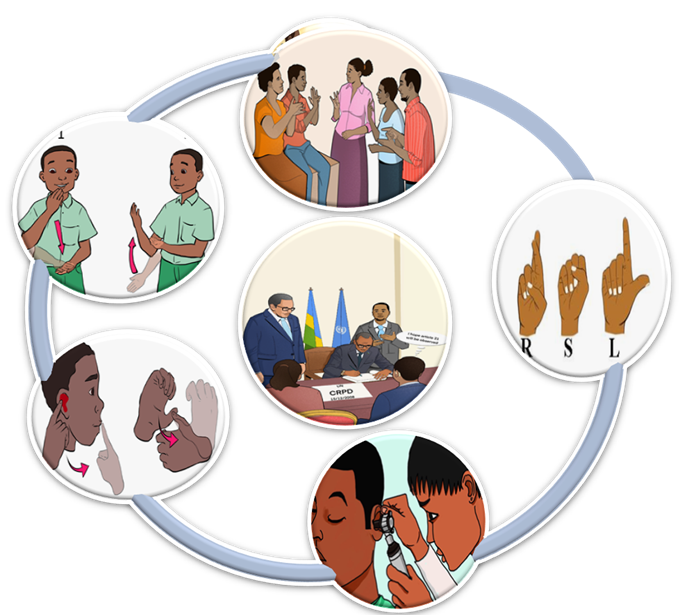The convention on the Right of Persons with Disabilities recognizes and promotes the use of sign languages. The learning of sign language is of equal importance as the learning of other languages. This module is meant to develop trainees’ basic competences in sign language to better meet the educational needs of the learning with hearing difficulties
- Enrolled students: 23
This module seeks to introduce the background and context of these concepts within the emerging international and national educational movement. It is discussed as an increasingly non-discriminatory development, comparison underlying Rwandan Sign Language and spoken language, basic sign language and sentence structure of Rwandan sign language that are expected to support learners who are Deaf or Hard of hearing
- Enrolled students: 23
Deaf people from diverse backgrounds need to interact with each other within the Deaf community. In this community, they are part of the same Deaf culture where they can use sign language. Hearing people are also required to know how to sign if they need to be part of the Deaf community. In Rwanda, there are schools for the Deaf, associations for the Deaf and other opportunities which are offered to them, but hearing people are excluded from these institutions because they don’t know Rwandan sign language. The Deaf culture is for both Deaf and hearing people who respond to this criterion. Rwandans still need to learn a new way of conceptualizing deafness within and outside the Deaf community. The Deaf person deserves to be conceptualized in terms of Deafhood and not as hearing impaired. This new way of conceptualizing the Deaf culture may contribute to the adjustment of Rwandans’ daily practices.
The present module is designed for filling in this gap. You will learn about deafness, Deafhood and Deaf culture. You will be equipped with knowledge and skills which will guide you in your trajectory to Deaf culture. This may lead you to change your perception about deafness. You will learn the new concept of Deafhood which is compatible with the social viewpoint of deafness.
- Enrolled students: 23
This module seeks to introduce the key concepts and theories underlying how to teach learners with hearing difficulties and how to support them in an inclusive setting.
- Enrolled students: 24




